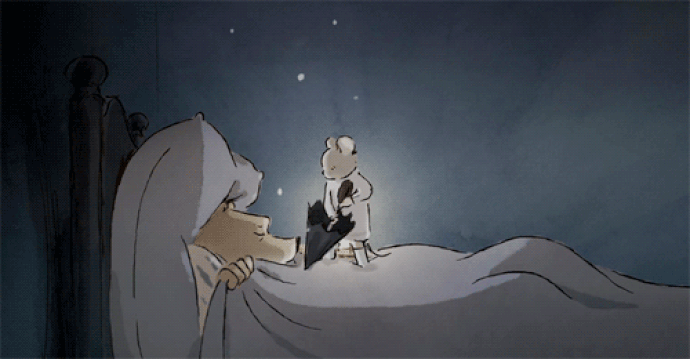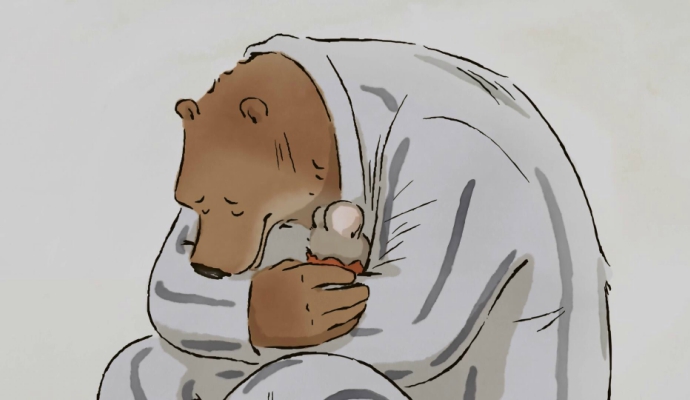Ernest & Celestine is not your usual animated film. It doesn’t have the 3D bells and whistles of your typical Pixar animation, and instead of heavy CGI which may keep us in awe about how lifelike a cartoon can be, this beautifully hand-drawn French animation brings audiences back to the time when story, dialogue and themes were paramount.

The tale of Ernest & Celestine is drawn from a popular series of children’s books of the same name by Belgium author/illustrator Gabrielle Vincent. In this world, there are bears and there are mice – both living in a parallel society in which ‘the other’ is despised, feared and very much not open to a harmonious relationship. However, things change when the protagonist, Celestine (voiced by Mackenzie Foy), a young mouse wanting to pursue her passion for art, dares to change the status quo. This type of ‘us verses them’ universe is by no means unique, but directors Stéphane Aubier, Vincent Patar and Benjamin Renner present it in such a way that still touches audiences with its broader philosophical lessons, and perhaps in the current climate, challenging preconceived views of ‘the other’ and the consequences of small-minded generalisation is even more relevant.

The original French version of this animation was released in 2012, with the English dub version with a number of Hollywood heavyweight actors released in 2014. From Forest Whitaker’s booming voice as the lovable bear Ernest, Nick Offerman’s hilarious take as a candy seller, and to big screen royalty Lauren Bacall’s incarnation as the stern and elderly headmistress at the orphanage. In one of Bacall’s final acting roles, as The Grey One, she scares the young mice nightly with fantastical stories about the big bad bears.

However, it is not only the vibrant voices that give life to this cartoon drama-comedy, but the relatively humble animation infuses the film with a constant warmth and tenderness which matches the simple but touching story. Unlike some other recent Hollywood animations that not only look sleek but also cater to kids and adults alike in its sometimes-bold humour, Ernest & Celestine resists this pressure to conform to this new age style of animation and instead remains clearly a children’s story. But, like many children’s stories, the themes of open-mindedness, kindness and understanding are universal for all and are presented just as earnestly.

The popularity and overwhelming critical acclaim which the film enjoyed after its release, including a slew of nominations and wins from various festivals and associations (including an Academy Award nomination for Best Animated Feature in 2013 - losing out to Disney’s juggernaut, Frozen), goes to show that it isn’t always about the special effects or fancy computer graphics that gets audiences – it’s about the narrative itself. Watching Ernest & Celestine is a genuine pleasure because it takes us back to the simple things in life – beyond the fanfare and complexities of the modern day – when a simple, beautifully drawn and old-fashioned animation can tell us a tale which not only entertains us, but warms our hearts as well.
Ernest & Celestine Interview with Directors





